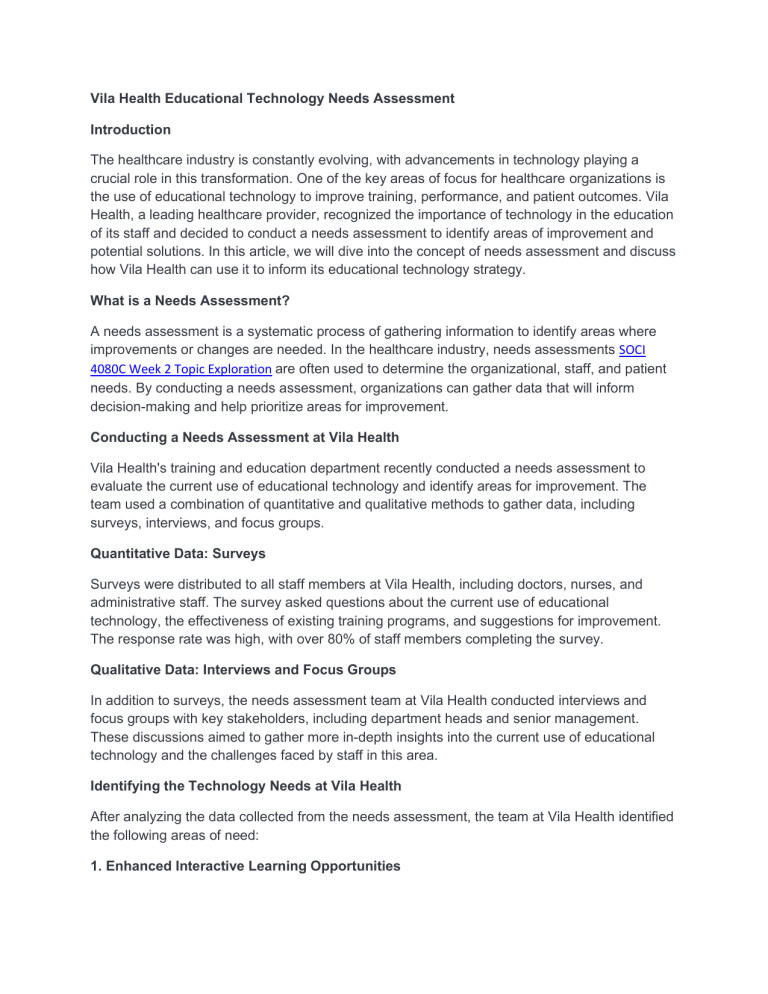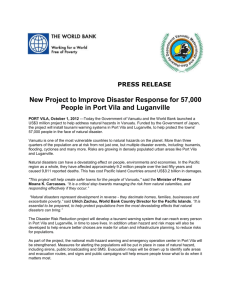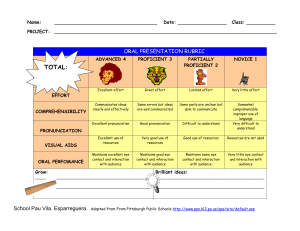
Vila Health Educational Technology Needs Assessment Introduction The healthcare industry is constantly evolving, with advancements in technology playing a crucial role in this transformation. One of the key areas of focus for healthcare organizations is the use of educational technology to improve training, performance, and patient outcomes. Vila Health, a leading healthcare provider, recognized the importance of technology in the education of its staff and decided to conduct a needs assessment to identify areas of improvement and potential solutions. In this article, we will dive into the concept of needs assessment and discuss how Vila Health can use it to inform its educational technology strategy. What is a Needs Assessment? A needs assessment is a systematic process of gathering information to identify areas where improvements or changes are needed. In the healthcare industry, needs assessments SOCI 4080C Week 2 Topic Exploration are often used to determine the organizational, staff, and patient needs. By conducting a needs assessment, organizations can gather data that will inform decision-making and help prioritize areas for improvement. Conducting a Needs Assessment at Vila Health Vila Health's training and education department recently conducted a needs assessment to evaluate the current use of educational technology and identify areas for improvement. The team used a combination of quantitative and qualitative methods to gather data, including surveys, interviews, and focus groups. Quantitative Data: Surveys Surveys were distributed to all staff members at Vila Health, including doctors, nurses, and administrative staff. The survey asked questions about the current use of educational technology, the effectiveness of existing training programs, and suggestions for improvement. The response rate was high, with over 80% of staff members completing the survey. Qualitative Data: Interviews and Focus Groups In addition to surveys, the needs assessment team at Vila Health conducted interviews and focus groups with key stakeholders, including department heads and senior management. These discussions aimed to gather more in-depth insights into the current use of educational technology and the challenges faced by staff in this area. Identifying the Technology Needs at Vila Health After analyzing the data collected from the needs assessment, the team at Vila Health identified the following areas of need: 1. Enhanced Interactive Learning Opportunities One of the key findings from the needs assessment was the need for more interactive learning opportunities. Many staff members expressed a desire to have more hands-on training and interactive simulations to improve their skills and knowledge. The existing training programs were mainly lecture-based, and many staff members felt the need for more engaging and interactive methods of learning. 2. Improved Accessibility and User-Friendliness of Educational Technology Another major challenge highlighted in the needs assessment was the lack of user-friendly educational technology. Staff members reported difficulties in accessing and navigating the online learning platforms, which impacted their learning experience. Many also expressed the need for educational technology that is compatible with various devices, such as laptops, tablets, and mobile phones. 3. Customized Training Programs for Different Departments The needs assessment also revealed that different departments within Vila Health have different educational technology needs. For example, nurses require different training programs than doctors, and administrative staff may have a different set of learning needs altogether. Currently, the training programs offered by Vila Health are generic and do not cater to the specific needs of different departments. 4. Ongoing Support and Training for Technological Tools Staff members highlighted the need for ongoing support and training for the various technological tools used in their day-to-day work. Many felt that they were not adequately trained on the use of these tools, which affected their efficiency and job performance. There is a need for continuous training and support to ensure that staff members are up-to-date with the latest technology and can use it effectively. Proposed Solutions To address the identified needs, Vila Health can implement the following solutions: 1. Integration of Interactive Learning Modules Incorporating interactive learning modules such as simulations, case studies, and virtual reality technology can make training programs more engaging and effective. These modules can be incorporated into both online and in-person training sessions, providing staff members with hands-on experience and valuable feedback. 2. User-Friendly Educational Technology Platforms Vila Health can invest in educational technology platforms that are user-friendly and accessible on various devices. This will ensure that staff members can access training materials anytime and anywhere, making learning more convenient and effective. 3. Customized Training Programs for Different Departments The organization can create customized training programs for different departments based on their specific needs. This will result in more targeted and effective education, resulting in improved job performance and patient outcomes. 4. Ongoing Support and Training To ensure that staff members are confident in using the technological tools, Vila Health can provide ongoing support HCS 370 Week 3 Individuals & Teams in Organizations and training for these tools. This can include workshops, webinars, and one-on-one sessions to address any difficulties or questions staff members may have. Conclusion In conclusion, conducting a needs assessment has enabled Vila Health to identify key areas for improvement in its use of educational technology. The proposed solutions, if implemented, can make a significant impact on the organization's training programs and ultimately improve patient outcomes. By continuously conducting needs assessments and adapting to the evolving needs of its staff and patients, Vila Health can stay at the forefront of educational technology and continue to provide exceptional healthcare services.


